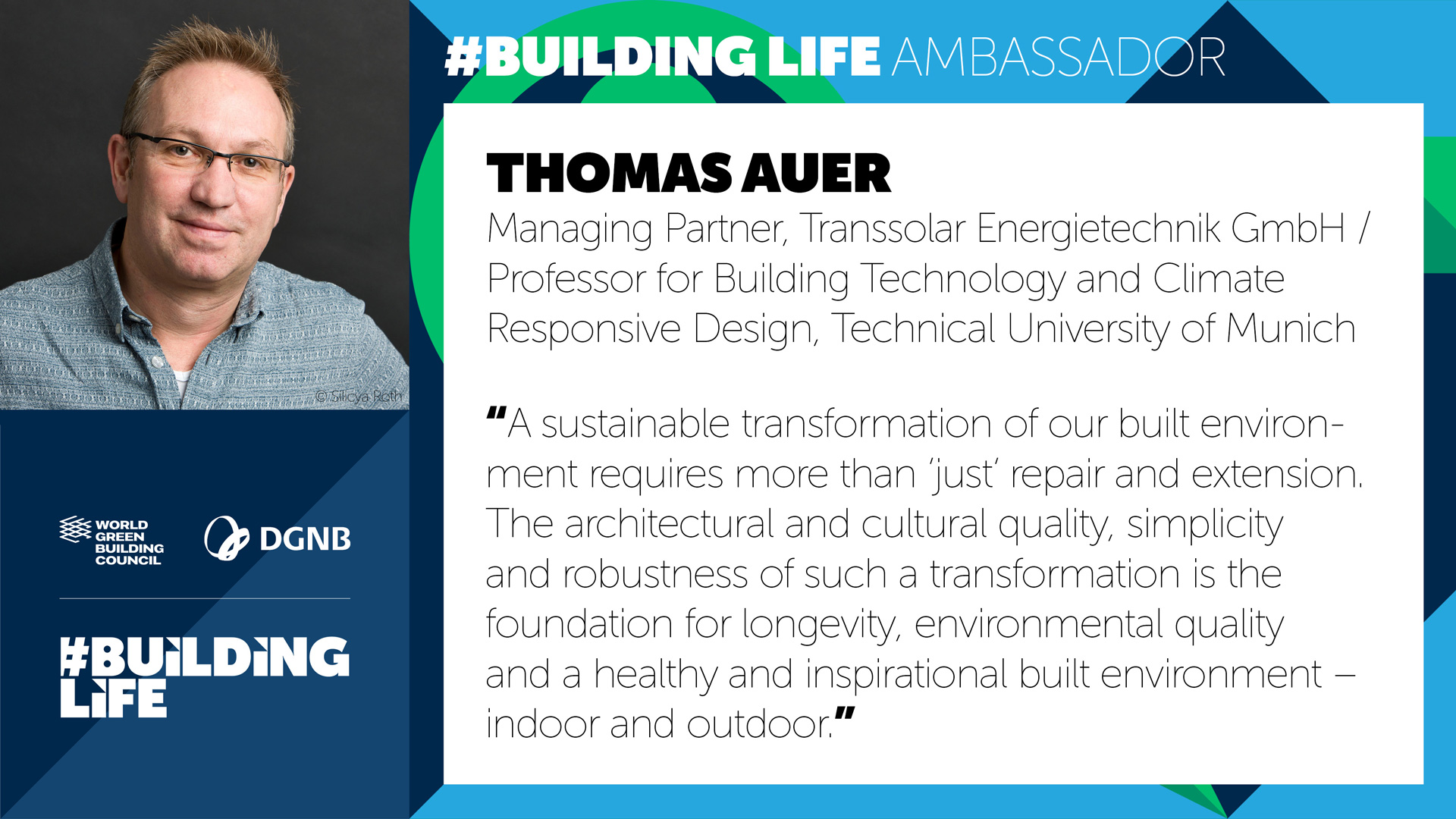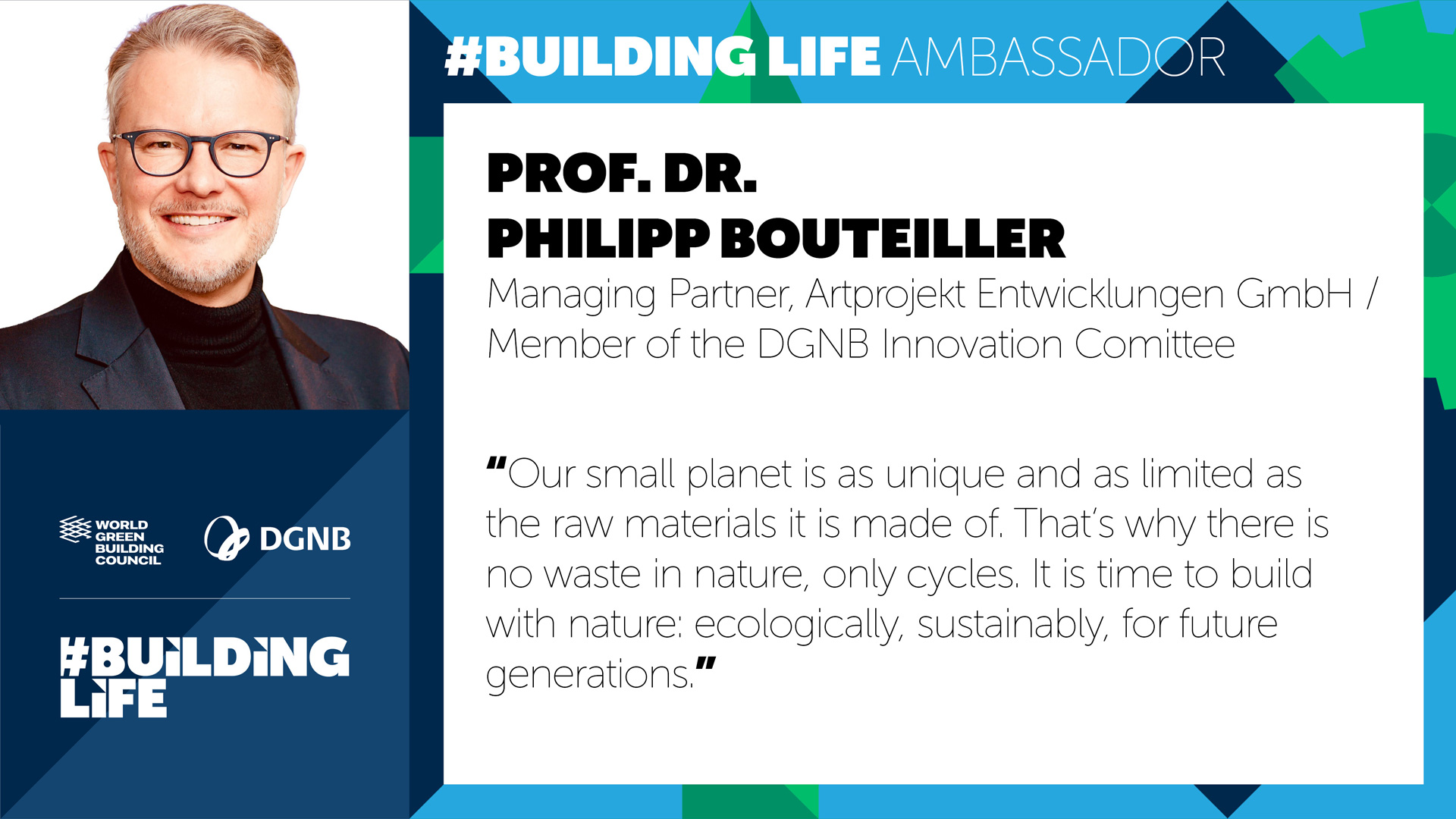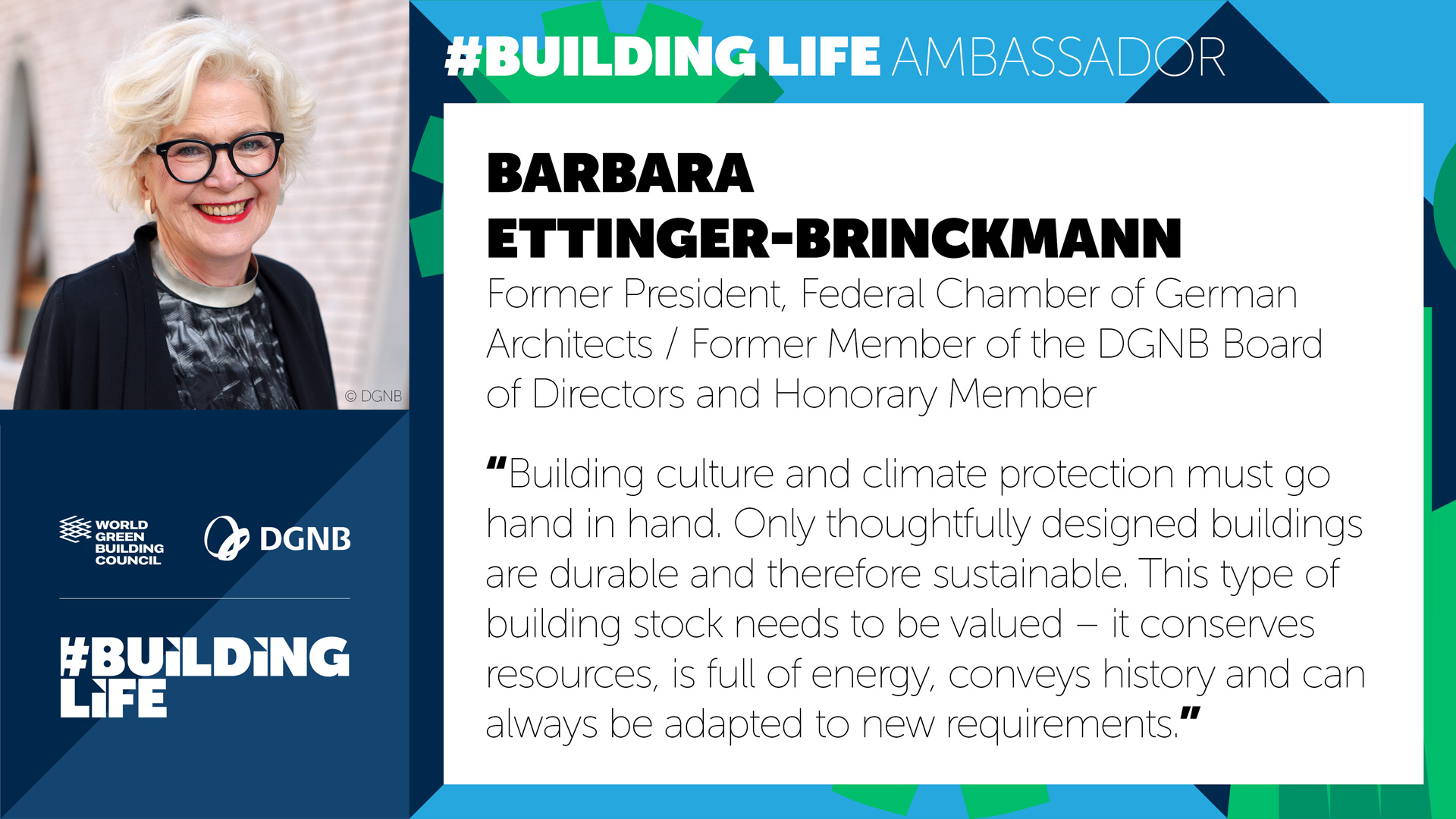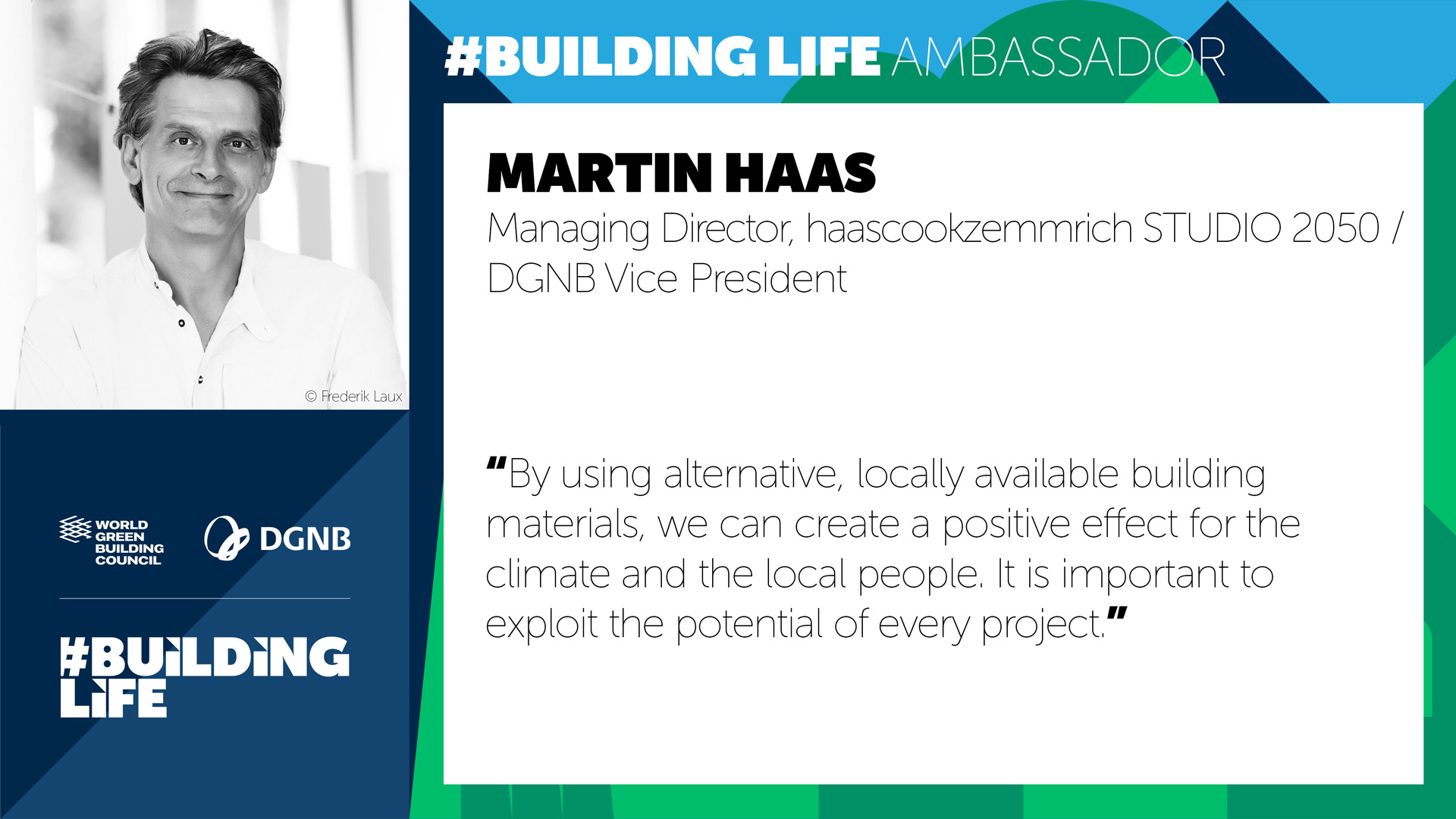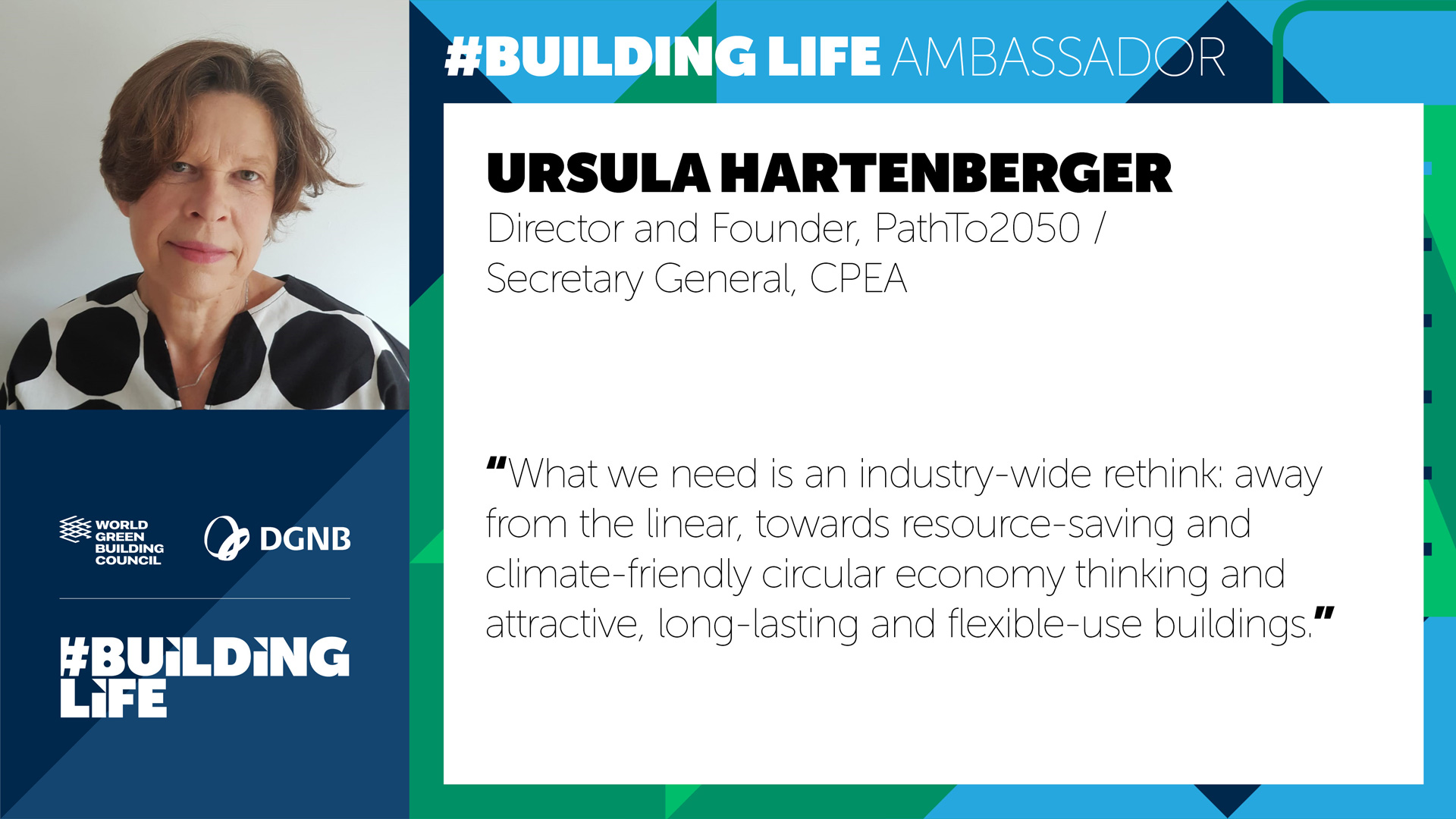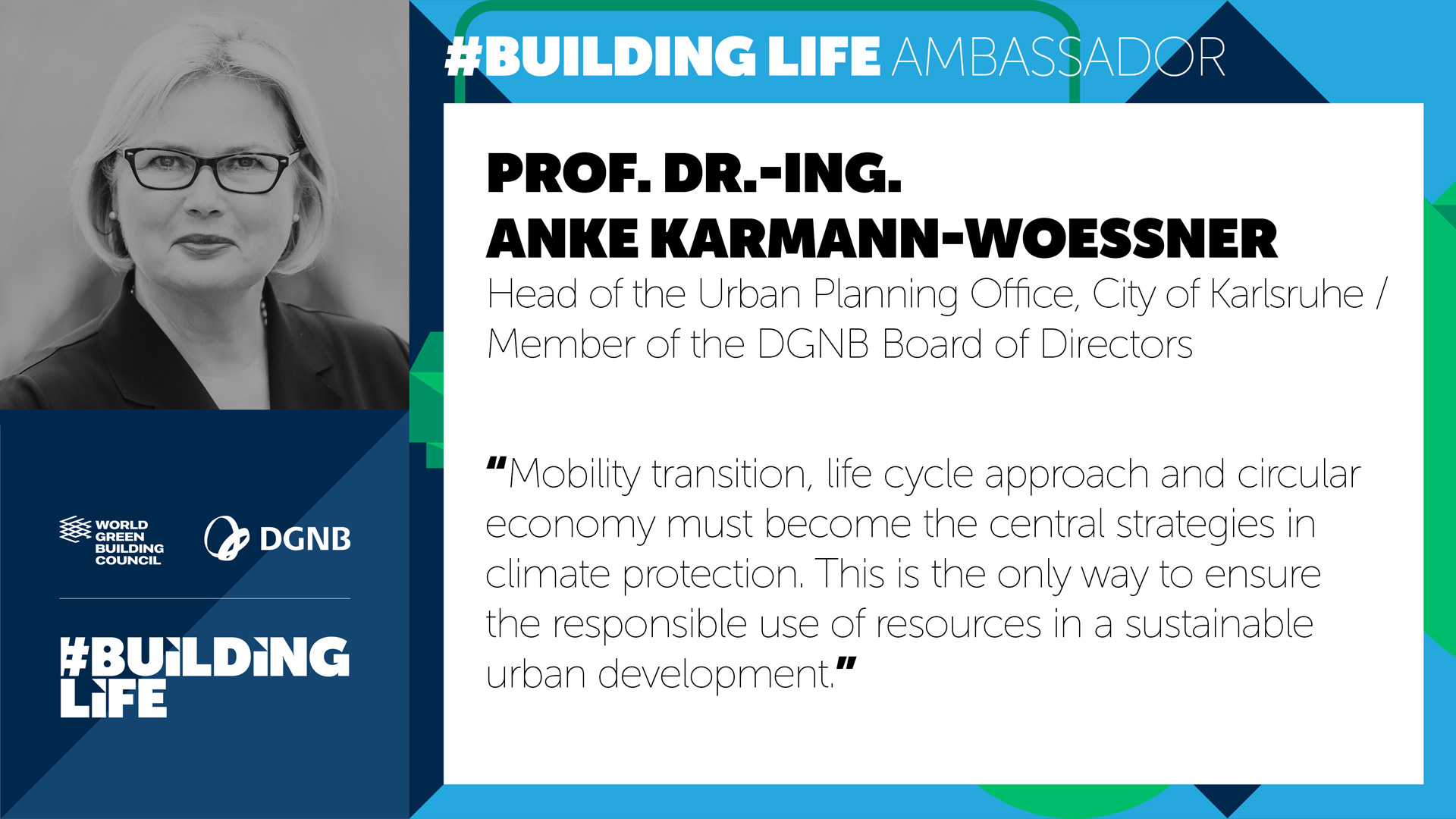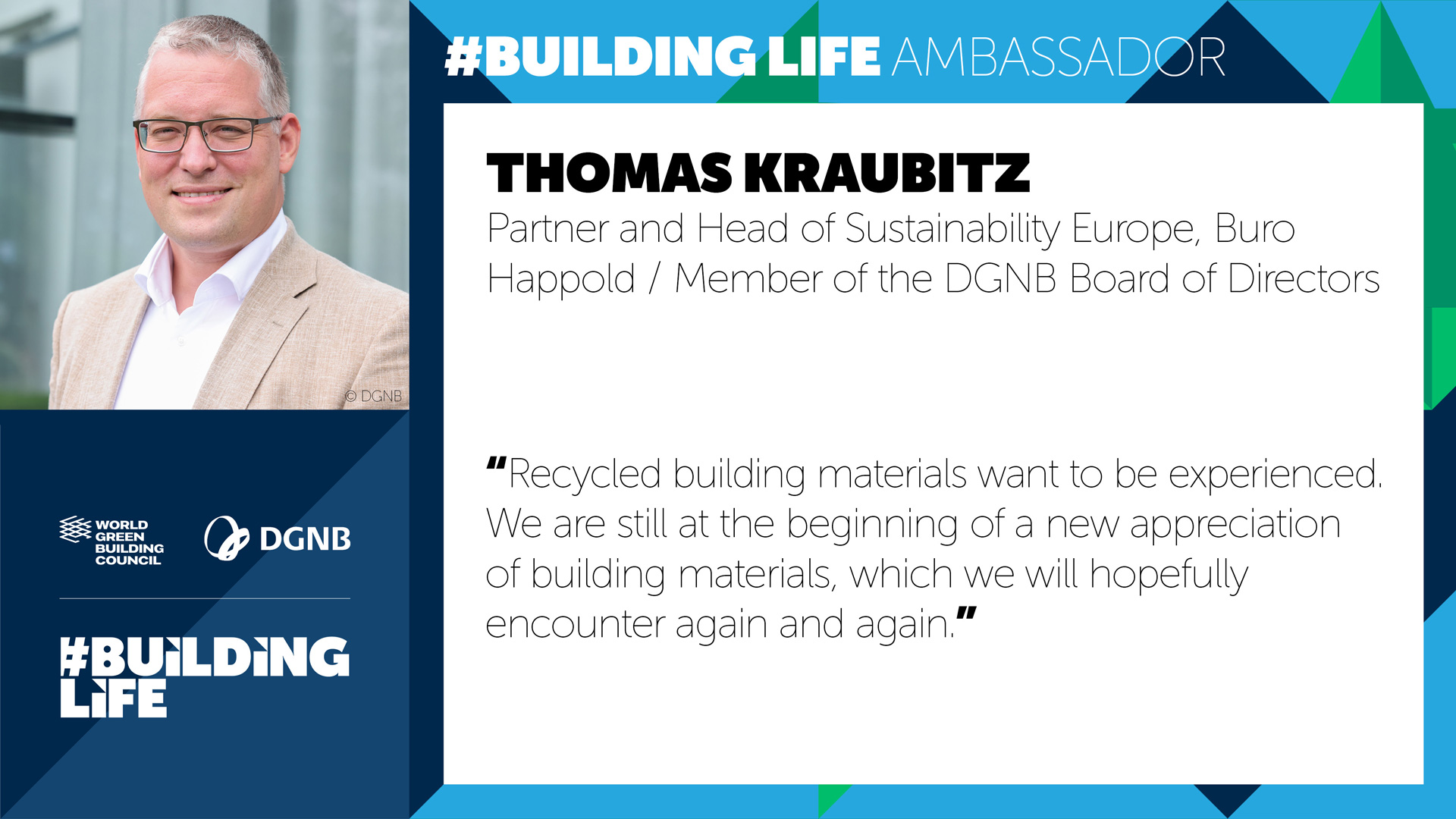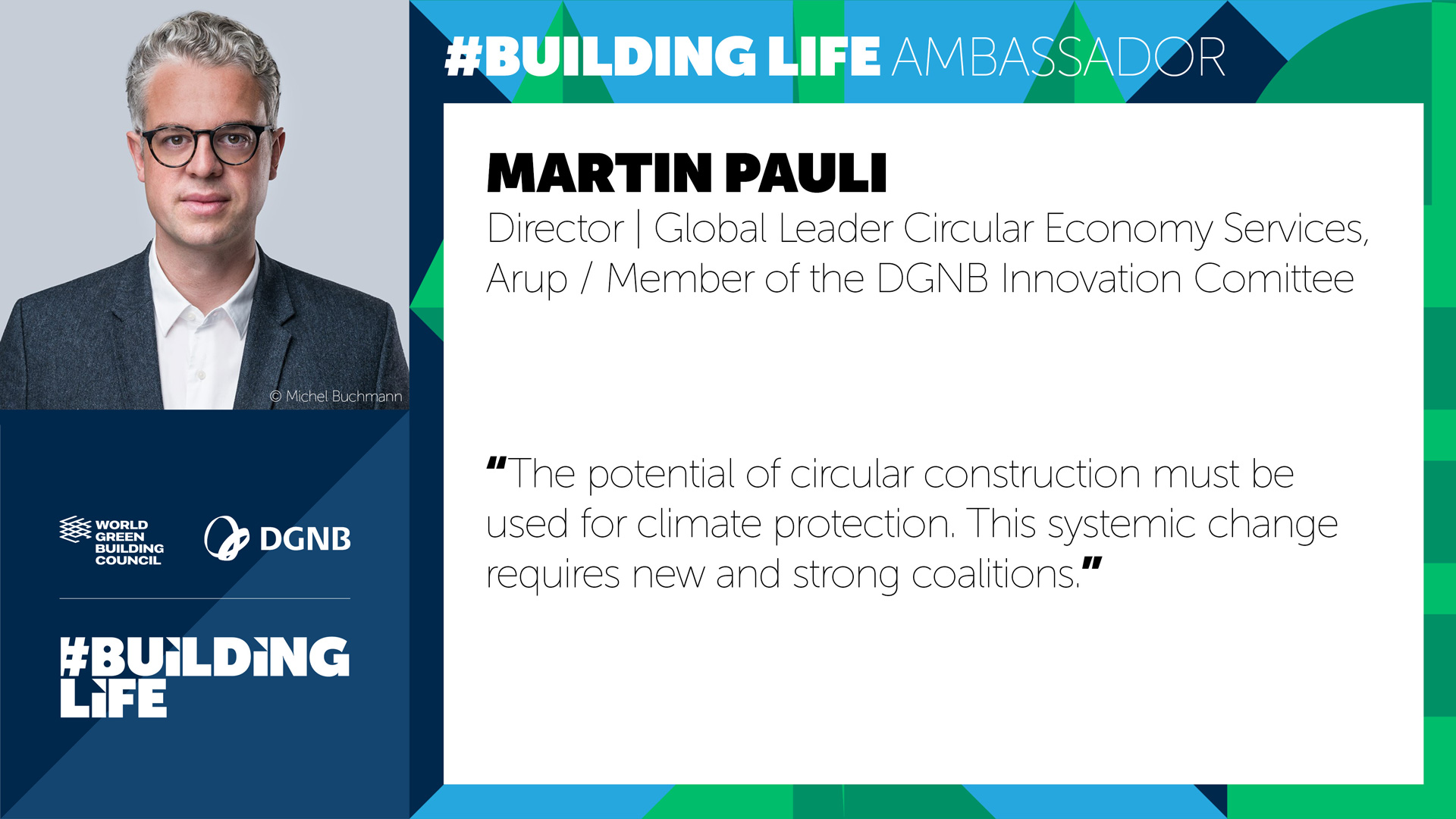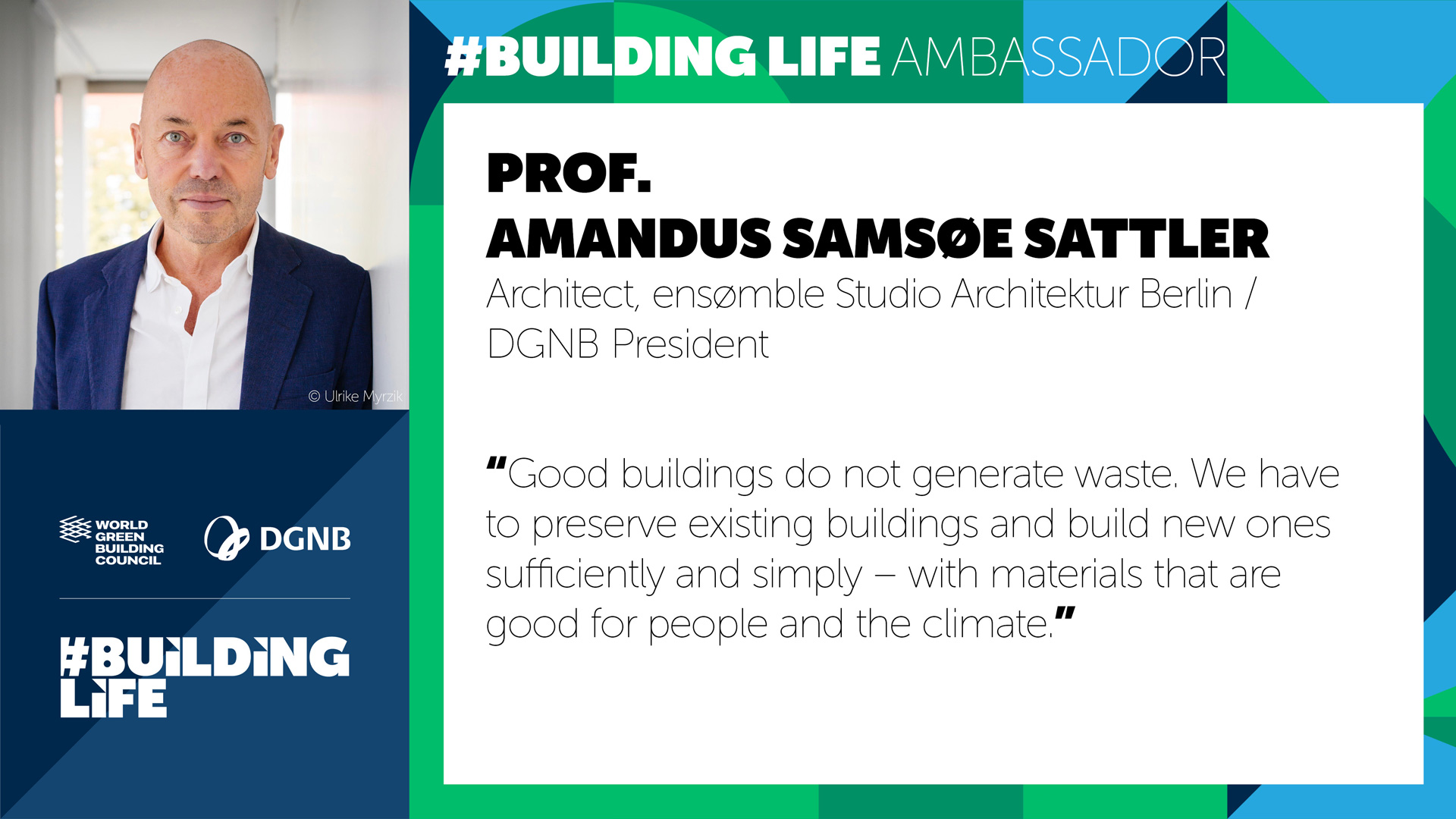The project and its objectives
#BuildingLife
To support and implement the European Green Deal, the World Green Building Council (WorldGBC) has brought together ten European Green Building Councils (GBCs) under the #BuildingLife campaign to drive climate action in the building sector through the development of national and regional decarbonisation roadmaps and their implementation. This is because buildings are responsible for about 40 per cent of energy consumption, 36 per cent of CO2 emissions, 50 per cent of all materials extracted and 35 per cent of all waste generated in the EU. A climate-neutral Europe can only be achieved if we address these emissions and environmental impacts. At the heart of the campaign is a call for national governments and the European Commission to support bold and ambitious policies that address life-cycle emissions from buildings. In addition to the operational emissions of buildings, this includes the environmental impacts of the manufacturing, transport, construction and end-of-life phases of buildings – often referred to as embodied carbon.
#BuildingLife2
With the continuation of the project (#BuildingLife2), the WorldGBC and twelve European GBCs call on the EU to implement the principles of the decarbonisation roadmaps developed at the scale and pace required to achieve the transformation of the entire sector. The aim is to increase transparency and accountability in the construction and real estate sectors across Europe. After all, achieving full decarbonisation of the building stock by 2050 requires short-term action to address negative environmental impacts over the entire life cycle of a building – not empty promises.
Participation of the DGNB
As one of the participating Green and Sustainable Building Councils, the DGNB developed targets and concrete measures for a climate-positive building stock in Germany over the entire life cycle, which were published in November 2022.
Project results and publications
Under the motto "Act now, remove barriers now, collaborate now", the DGNB has developed the Guide to Climate Positive Building Stock as part of the #BuildingLife project. It shows how the building stock can become climate-positive.
Part 1 of the guide provides basic knowledge about the status quo at the political level and in relation to the building stock. It then identifies the 50 most important measures for a common path to a climate-positive building stock along four overarching strategic goals and associated fields of action. It is aimed at all actors in the building and property sector, as well as decision-makers in local government, science, politics and finance.
Part 2 consists of a comprehensive collection of measures for achieving a climate-positive building stock. The top 50 measures from the first part of the guide are described in more detail here. In addition, there is a comprehensive collection of all relevant measures for a complete climate-positive orientation of the building sector.
DGNB status report 2024 on the Guide to Climate Positive Building Stock
With the publication of the Guide to Climate Positive Building Stock, the DGNB has formulated the long-term goals that need to be achieved for the transformation and backed them up with practical fields of action and measures. The four long-term strategic goals have also been broken down into short-, medium- and long-term milestones and sub-goals that can be monitored using measurable and comprehensible indicators.
The status report shows whether progress has been made towards a climate positive building stock since its publication. We hope that this and subsequent reports will provide impetus and feasible recommendations for action to the buildings industry, the property sector, the financial sector and policy makers.
#BuildingLife Roadmap Analysis report 2024
WorldGBC and the Green Building Councils driving the #BuildingLife project have been working to deliver on the European Green Deal through national and regional decarbonisation roadmaps. The #BuildingLife Roadmap Analysis report shares the successes, challenges and opportunities of the roadmaps, demonstrating how the European conversation around Whole Life Carbon (WLC) has transformed in the three years since the #BuildingLife project began.

#BuildingLife Roadmap Analysis report
Support the campaign
We can only succeed in the (climate) transformation together. That is why we are asking representatives of various stakeholder groups for feedback and active support throughout the course of the project, so that together we can move closer to the goal of decarbonising our building stock. We will inform you about the respective participation opportunities and dates on this page.
There are no current dates at present.
Would you like to support the project or learn more about the opportunities to get involved? Then please feel free to contact us.
#BuildingLife Ambassadors
All over the world, experts from different sectors of the building and real estate industry support the project and speak out for the necessity of a complete decarbonisation of the building stock. The #BuildingLife ambassadors from Germany are:
Duration and partners
#BuildingLife
Together with the WorldGBC, ten European GBCs were involved in the three-year campaign (2019 to 2022). In addition to the DGNB, these were: Croatia GBC, GBC Finland (FiGBC), Alliance HQE-GBC, Irish GBC (IGBC), GBC Italia, Dutch GBC (DGBC), Polish GBC (PLGBC), GBC España (GBCe) and UK GBC.
#BuildingLife2
Following the success of #BuildingLife in 2022, the WorldGBC announced an extension of the project in May 2023: #BuildingLife2. The project will receive further funding and will continue until May 2027. Under the leadership of the WorldGBC, eleven other European GBCs are involved in the project in addition to the DGNB. New to the list are: Czech GBC (CZGBC) and Hungary GBC (HuGBC).
Learn more
For more information on the project, visit the World Green Building Council's website.
Funding notice
#BuildingLife has received funding from the IKEA Foundation and Laudes Foundation as well as from the European Bank for Reconstruction and Development and the European Climate Foundation.


